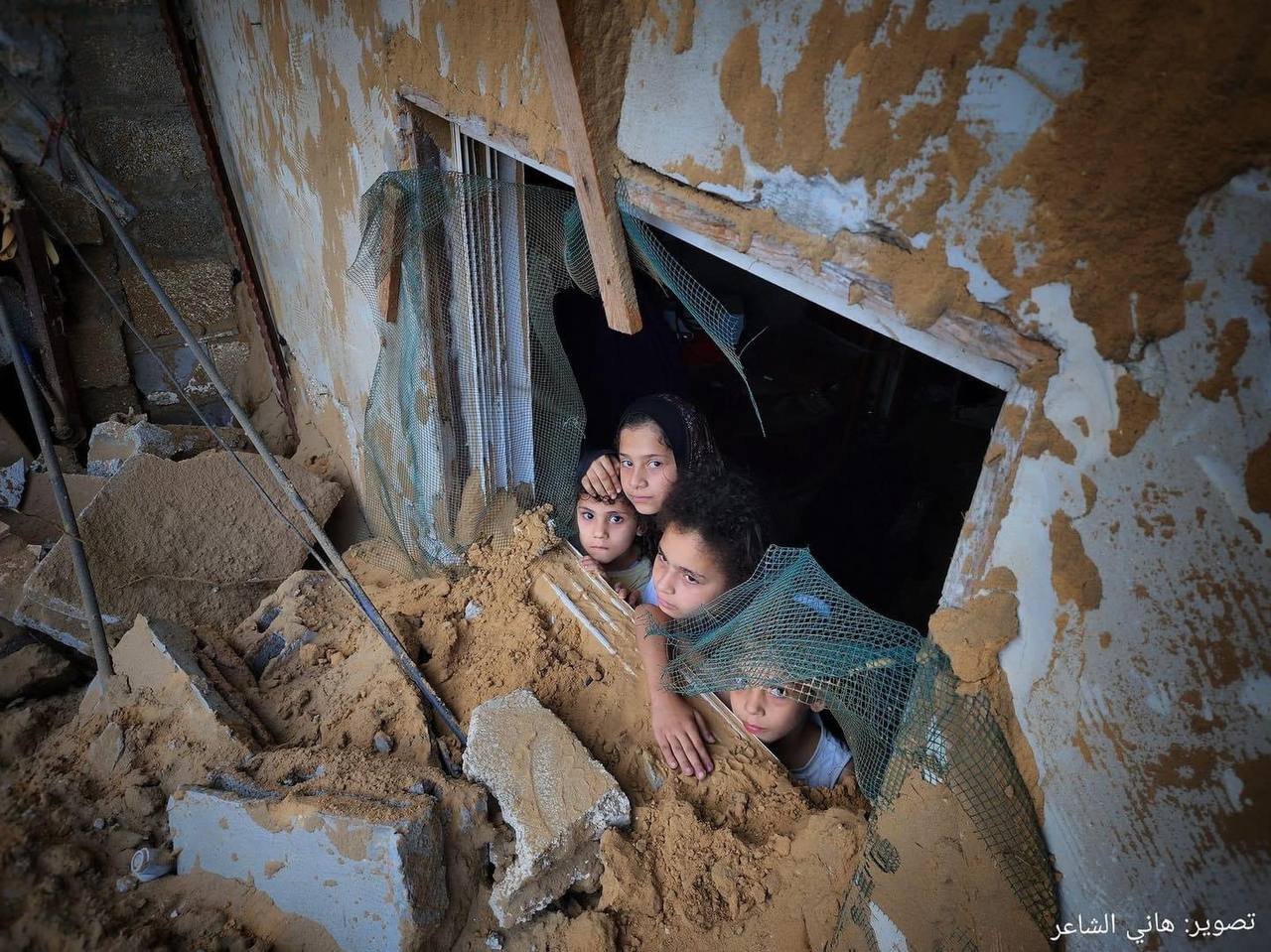The UNRWA official warned that Gaza is currently “being strangled” while noting that there is an overwhelming exodus of Palestinians across the city.
The United Nations sounded the alarm over “an unprecedented humanitarian catastrophe” in the besieged Gaza Strip on Sunday, where Israel has launched its deadliest aggression on the Palestinian enclave in years.
“In fact, an unprecedented humanitarian catastrophe is unfolding under our eyes,” Philippe Lazzarini, the Commissioner-General of the UN Relief and Works Agency for Palestine Refugees (UNRWA) said.
The UN official warned that more than two million people in Gaza are facing a life-threatening lack of basic resources.
“There is not one drop of water, not one grain of wheat, not a litre of fuel that has been allowed into the Gaza Strip for the last eight days,” he said.
Israel has been bombarding Gaza for 10 consecutive days, killing at least 2,808 Palestinians, including at least 800 children and wounding more than 11,000 others. The figure is expected to rise amid the ongoing bombing campaign, with more than 1,000 bodies believed to be trapped under the rubble.
The occupying state has further exacerbated the suffering of millions of Palestinian in Gaza by imposing a complete embargo on the already blockaded city, cutting off all access to food, water, and electricity.
The UNRWA official warned that Gaza is currently “being strangled” and pointed to an overwhelming exodus of Palestinians across the city.
“If we look at the issue of water — we all know water is life — Gaza is running out of water, and Gaza is running out of life,” Lazzarini told the press in Jerusalem.
On Friday, the Israeli occupation forces (IOF) ordered at least one million people in Gaza to flee to the south of the besieged enclave then proceeded to attack those who tried to move as instructed.
There are at least 400,000 people seeking shelter at UNRWA schools under unsanitary conditions.
“The situation is catastrophic, catastrophic, catastrophic,” UNRWA staff Rawya Halas said from Gaza as she witnessed firsthand the suffering on the ground.
No ceasefire in sight
While initial reports on Monday pointed to a potential ceasefire in Gaza following an alleged agreement between Egypt and Israel, both sides have dismissed the claims.
A day earlier, Egyptian Foreign Minister Sameh Shoukry said his country initially sought to keep the Rafah crossing open, but Israel had prevented it from its side. The shared crossing between Gaza and Egypt is the only way in and out of the Palestinian city that is not controlled by Israel.
However, the IOF forced the crossing to shut down last week following attacks on the facility.
Egyptian media on Saturday reported that Cairo had denied a request by the United States to open the Rafah crossing for foreign nationals only without enabling the safe passage of humanitarian aid to Gaza.
Egyptian sources privy to the matter told Cairo News that the country had placed the entry of aid as a condition to allowing foreigners, including Americans, to exit Gaza.
“The Egyptian stance is clear, it requires the aid to arrive in Gaza,” the report said.
The Egyptian refusal came after reported talks between the US, Qatar, and Israel to open the Rafah crossing to allow for much-needed aid to enter Gaza as it faces a complete blockade by the occupying state.
“We have been trying to facilitate access for it to be open from 12 to five today. The Egyptians, the Israelis and the Qataris have been working with us on that,” a US State Department official told reporters on Saturday, as quoted by Reuters.
The Washington official was addressing reporters travelling with US Secretary of State Antony Blinken as part of the regional tour that started off in Tel Aviv on Thursday, followed by Jordan, Qatar, Saudi Arabia, and Egypt.
During the joint presser between Qatar’s Prime Minister and Minister of Foreign Affairs Sheikh Mohammed bin Abdulrahman Al Thani and Blinken Doha, the two diplomats said they have been working closely to establish a safe humanitarian corridor.
“What we can see in Gaza Strip and shortage of basic needs, no electricity – because of the bombardment,” the Qatari foreign minister said, describing the situation on the ground in the Strip as “a disaster”.
However, Blinken claimed efforts to get humanitarian aid into Gaza “are complicated by the fact that Hamas continues to use innocent civilians as human shields”.
The difficulty of sending urgent aid to Gaza comes as it faces a complete Israeli siege that has prevented millions from accessing water, electricity and food. Many grocery stores have also been targeted by the IOF or forced to shut down after running out of supplies.
Cairo, which shares diplomatic ties with Tel Aviv, and Doha—the host of Hamas’ political office—have been at the forefront of de-escalation efforts in Gaza since the onset of the latest events.
The Gulf state has also been in close contact with key international partners— namely the US, the United Kingdom, Iran, Turkiye, Jordan, Saudi Arabia, among others—in an effort to explore an end to the escalations in Gaza.
“The only way to reach a peaceful solution is to open all contact channels with all partners and concerned parties through cooperation[…] Qatar deeply believes that mediation, dialogue are very important and this is part of our foreign policy,” Sheikh Mohammed told the press.
Mounting fears over ground invasion
Meanwhile on Sunday, the Israeli military announced plans for a full-scale ground invasion of Gaza.
Israeli tanks were seen positioning themselves along the Gaza border in what has been described as the “largest pull-up of Israeli reservists in Israel’s history.”
“We also saw Israeli Prime Minister Benjamin Netanyahu talking to troops and telling them the next phase was about to begin. Some leaks in Israeli media also say ground invasion is going to begin. It is now only a question of time before that happens,” Al Jazeera journalist Stefanie Dekker reported from the ground.







